featured
Texas Governor Issues Executive Order to Regulate Hemp THC Products
Published
4 days agoon
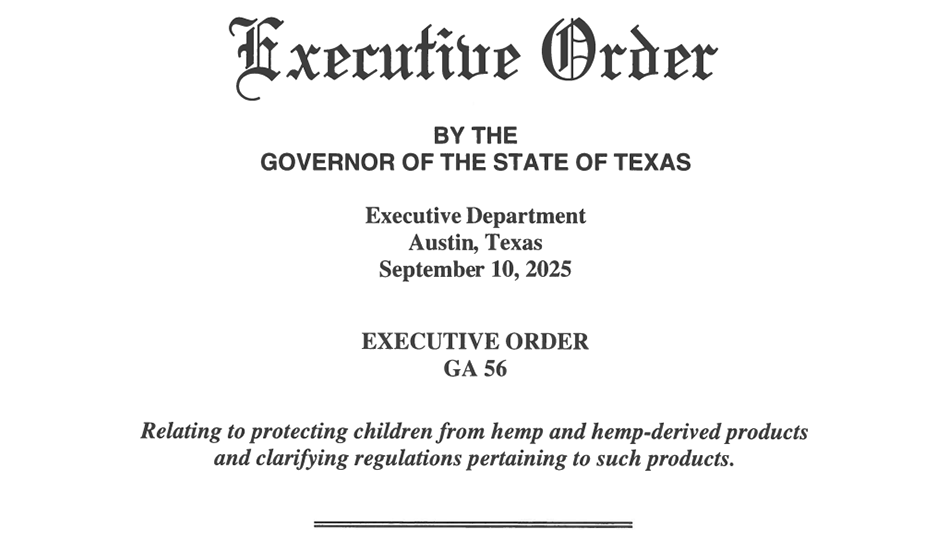
Texas Gov. Greg Abbott signed an executive order on Sept. 10 that directs three state agencies to implement polices to further regulate the state’s multibillion-dollar market for hemp products containing THC and other intoxicating cannabinoids.
The governor plans to utilize his executive powers after Texas Lt. Gov. Dan Patrick, the presiding officer of the state Senate, repeatedly ignored Abbott’s call for regulation in two special sessions and instead attempted to push a ban through the Legislature.
In his executive order, Abbott pointed out that Patrick and the Legislature failed to act.
“The Legislature did not pass any legislation concerning consumable hemp products, not even a ban for minors, leaving in place the status quo,” the governor wrote.
Now taking matters into his own hands, Abbott directed the Department of State Health Services (DSHS), the Alcoholic Beverage Commission (TABC) and the Department of Public Safety (DPS) to adopt, oversee and enforce regulations to help ensure hemp-derived products don’t end up in the hands of children and to allow those 21 and older to purchase product that meet specific consumer safeguards.
“Texas will not wait when it comes to protecting children and families,” Abbott said Wednesday in a pubic statement. “While these products would still benefit from the kind of comprehensive regulation set by the Texas Legislature for substances like alcohol and tobacco, my executive order makes sure that kids are kept safe and parents have peace of mind now, and that consumers know the products they purchase are tested and labeled responsibly.”
The executive order directs the TABC and DSHS to immediately begin a rulemaking process and calls for the following agency actions:
- DSHS and TABC must ban sales to minors and require verification of government-issued IDs at the point of sale, with failure to do so resulting in the loss of a retailer’s license.
- DSHS must review existing rules for possible revision, including strengthening testing and labeling requirements to ensure informed consumers, increasing licensing fees to facilitate enforcement, and improving recordkeeping to assist agency oversight.
- DSHS, TABC and DPS must coordinate and increase enforcement across the state, in partnership with local law enforcement agencies.
Furthermore, the order requires the DSHS to revise testing requirements to ensure tests measure the total delta-9 THC content, accounting for both delta-9 THC and THCA, and that products include a listing of the concentration of cannabinoids, a recommended serving size and applicable health warnings.
The total THC threshold deviates from the 2018 Farm Bill, which federally legalized hemp beyond state pilot programs. The farm bill omits the inclusion of THCA; however, nothing in the federal legislation prevents state governments from regulating hemp programs more stringently.
Also under Abbott’s executive order, the Texas DSHS would be responsible for strengthening recordkeeping requirements for all sales, as well as revising business application and renewal fees for hemp retailer and manufacturer licenses to cover the full regulatory and enforcement costs incurred by the state.
The DSHS and TABC will be responsible for enforcing laws and rules governing hemp-derived products, including compliance checks, special operations and seizure authority.
Abbott also directed the DSHS and TABC to work with the Texas A&M AgriLife Extension Service and other agencies to conduct a study on a comprehensive regulatory model similar to House Bill 309 that Rep. Briscoe Cain, R-Deer Park, filed Aug. 28 in the second special session.
The governor indicated that adopting the policy framework proposals from H.B. 309 would “provide a safe, transparent, and enforceable system that cracks down on abuse while preserving adult access to legal products.”
H.B. 309 would have:
- Criminalized selling hemp-derived products to children or marking, advertising or packaging those products in manners attractive to children;
- Prohibited retailers from selling hemp-derived products within 1,000 feet of schools, churches, playgrounds, homeless shelters, and substance abuse treatment facilities;
- Prohibited the retail sale of hemp flower and the manufacture or sale of hemp-derived products containing synthetic cannabinoids, such as delta-8 THC converted in a lab from CBD;
- Prohibited the sale of hemp-derived products mixed with alcohol, kratom, cava, tobacco or other similar substances;
- Required potency limits per serving and per package based on milligrams rather than percentage concentration (Abbott suggested 3 milligrams of THC);
- Required testing at every stage, from harvest to shelf;
- Provided enforcement mechanisms related to a licensing scheme and ongoing monitoring for manufacturers, distributors, and retailers, with the ability to cancel a license for those who violate state rules and regulations, as well as a civil cause of action for local prosecutors under the Deceptive Trade Practices Act; and
- Implemented a tax structure scaled to the amount of THC in a product, with revenue allocated to law enforcement, crime labs, and youth education and addiction services.
The DSHS, TABC and Texas A&M AgriLife Extension Service’s study must include a timeline for phased implementation of the proposed regulatory framework.
Lukas Gilkey, the CEO and co-founder of Texas-based Hometown Hero and a founding member of the Texas Hemp Business Council, said that he supports the governor.
“The governor just issued an executive order banning hemp products for purchase for anybody under 21,” Gilkey said in a video on X. “The reason that we’ve been told why this has never passed before is because it gave credibility to our industry, and then it was used against our industry for not having an age gate. That age gate is now in place. This is something that we’ve been pushing for years. We cannot thank the governor enough.”
Evading Patrick and Senate Republicans’ attempt to ban hemp THC products and instead being regulated under Abbott’s order “completely” legitimizes the Texas hemp industry, he said.

Author: mscannabiz.com
MScannaBIZ for all you Mississippi Cannabis News and Information.
You may like
-
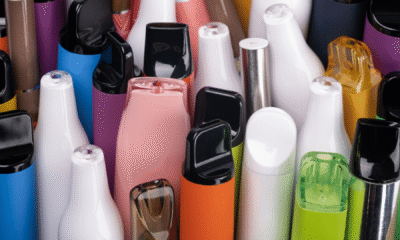

Dozen arrested after south Mississippi bust for illegal sales to underage customers
-
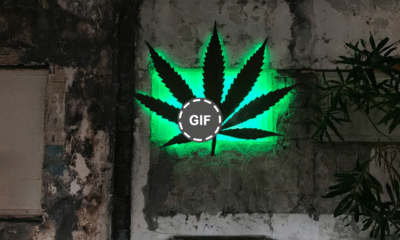

The Toking Traveler: Why Amsterdam Weed Is Mostly Boof
-


Arkansas Medical Marijuana Sales Are On Track To Set A New Annual Record
-
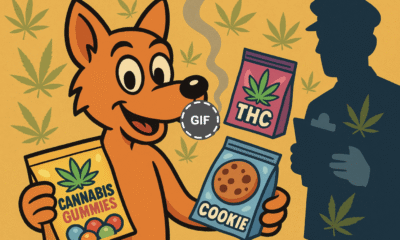

When Cannabis Brands Blur Into Youth Culture, Regulators Notice: Lessons From Tobacco’s Past
-
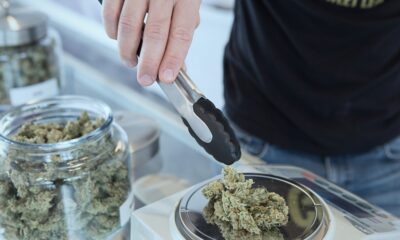

Rhode Island Marijuana Dispensary License Application Process Officially Launches
-


Middle school student found with cannabis in bookbag, Charles County deputies say
featured
The Toking Traveler: Why Amsterdam Weed Is Mostly Boof
Published
13 hours agoon
September 14, 2025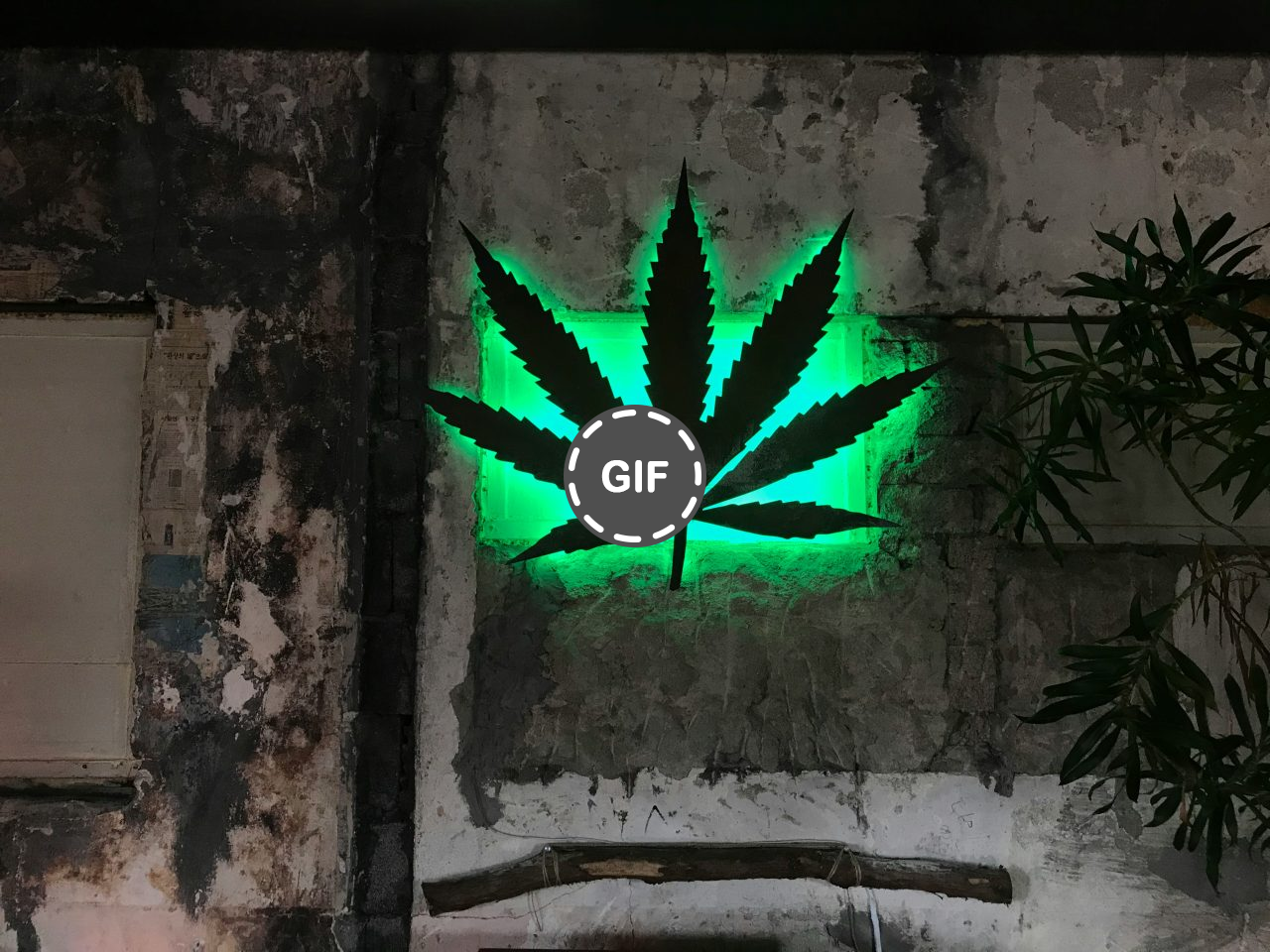
You know those tequila shops in Mexico? The tourist traps in every major resort town that try to pass off random blends of grain spirits as the real-deal Holyfield blue agave tequila?
Yes, this may come as a shock to our audience, but if you have even the slightest sense of what defines a quality cannabis product, you may leave Amsterdam feeling a bit… hoodwinked. Bamboozled. Punk’d.
Firmly the mecca of cannabis since back in 1976, Amsterdam holds a special place in our stoner hearts because of their laissez-faire approach to recreational consumption. For many, a trip to their famed coffee shops was the first chance we had to legally get high. White Widow, AK-47, OG Kush…they seem to have all the classics, along with a laundry list of different Hazes (e.g, Amnesia Haze, a signature smoke of the Dutch).
On my most recent trip back in July, I stepped off the plane after a particularly hellish 20+ hour journey from LA to Istanbul before finally reaching Schiphol and beelined for The Bulldog, arguably the most famous coffee shop in existence. While I appreciated the conversations I had with other patrons and staff alike, including a gregarious German home grow enthusiast living on an isolated island in the Caribbean, only in town while on his way to Eastern Europe for “the REAL Dracula history tour, not the one you see in guides,” the caliber of social interaction doesn’t really make up for how subpar their cannabis is.
Imagine an OG Kush that doesn’t look like OG, doesn’t smell like OG, or even hit you like OG. Yeah, it’s even more of a gutpunch after you realize you dropped $18 on a single gram of it.
Do the Dutch simply not care about quality? Or perhaps they mix so much damn tobacco into their spliffs that it doesn’t matter?
In my travels, I met many locals who also bemoaned their city’s lack of quality. This all stems from the fact that the Dutch have adopted a “tolerance policy,” as while cannabis (and other substances) do remain federally illegal in the Netherlands, they’ve realized that attempting to regulate often does more harm than good. Who’d have thought?!?
While there is essentially zero enforcement around the use of “soft drugs”, such as cannabis and psilocybin truffles, the rest of the supply chain is a fragmented nightmare of backroom deals and questionable practices. Simply stated, it’s all illicit market product.
Their system is entirely built around rewarding the lowest cost of production, regardless of safety or standards. Any cannabis you’ll find in Amsterdam hasn’t been lab tested, meaning that harmful bacteria, pesticides, and who knows what else are likely present in your bag. They’re able to get away with it, as most of the tourists crawling the Red Light District will never return to that same shop. It’s designed to run efficiently and without accountability.
Case in point:
- It is illegal to possess or use cannabis.
- It is illegal to commercially grow cannabis.
- It is legal for coffeeshops to sell you cannabis, but not for them to acquire that cannabis, so it “magically appears” for sale at each location.
Curious, eh? This is also why there is a very high probability that your coffee shop cannabis was grown on the top floor of a local high-rise apartment building by an organized criminal syndicate (and yes, they own/operate the rest of the space to provide cover). Your OG isn’t true OG because there are no repercussions if it’s not.
Now, the one exception where you can find true-to-strain cuts seems to be most of the Haze cultivars, as these are massively popular in Europe (and thus with locals) and known for being premium quality, so the bar is often a bit higher.
Fortunately, the times they are a-changin’ and even a craft rosin scene has started to develop in the city. I was personally blown away by the service I received at Boerejongens, a coffee shop that the headiest of locals kept endorsing. Outside of their shop, I was greeted by an employee in a sharp bowler hat and three-piece suit. These guys serve as de facto guardians of the neighborhood community, helping to ensure that anyone visiting doesn’t get too unruly. They’ll even help little old ladies cross the street or provide expert-level guidance to anyone lost, customer or otherwise. Inside the store, the “hipster barista” meme has been taken to wholly new levels, as there was a row of budtenders decked out in white butchers’ aprons, wielding giant butchers’ knives to chop up flower into your desired quantities. The Strawberry Haze at Boerejongens ran circles around everything else I procured, outside of a decent Blueberry Haze I found near Vondelpark.
Next time you’re ready to enjoy a toke as you navigate Amsterdam’s canals, do yourself a favor and avoid the touristy areas like the plague. The further you’re away from the Red Light District (and I’m sad to say, shops like The Bulldog), the closer you are to finding buds that won’t just scratch your itch but will truly impress you.
Photo by Jinsoo Choi on Unsplash

Author: mscannabiz.com
MScannaBIZ for all you Mississippi Cannabis News and Information.
featured
Arkansas Medical Marijuana Sales Are On Track To Set A New Annual Record
Published
15 hours agoon
September 14, 2025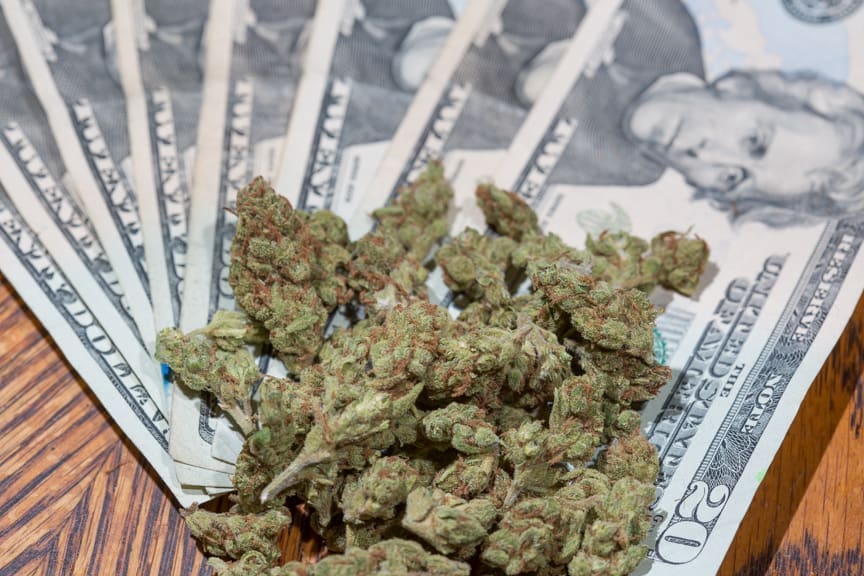
“A total of $1.5 billion has been spent on medical marijuana since the state’s first dispensary opened in May 2019.”
By Sonny Albarado, Arkansas Advocate
Arkansans spent $10 million more on medical marijuana so far this year than during the first eight months of 2024, putting the state on track to exceed a record set two years ago, according to the state finance department.
From January through August, Arkansans bought $193.1 million in medical marijuana products from the state’s dispensaries, compared with $182.5 million in the same period last year, according to a press release from the state Department of Finance and Administration.
“With daily sales averaging about $800,000 in 2025, we are on track to surpass the 2023 sales record of $283 million,” department spokesperson Scott Hardin said.
There has also been a significant year-to-year increase in the number of pounds of cannabis sold, Hardin said, with the 2025 total at 52,292 pounds.
The state collected $5.38 million in tax revenue from medical marijuana in July and August, bringing the total tax haul so far this year to $21.57 million.
Patients spent $24,262,201 in July, purchasing 6,721 pounds, and $24,647,170 in August, buying 6,778 pounds, according to the finance department.
Suite 443 in Hot Springs and Natural Relief Dispensary in Sherwood sold the most medical marijuana in both July and August, according to the press release. Suite 443 sold 1,419.6 pounds total for both months. Natural Relief sold 1,317.7 pounds over July and August.
“A total of $1.5 billion has been spent on medical marijuana since the state’s first dispensary opened in May 2019,” Hardin said.
The Arkansas Department of Health reports 109,060 active patient cards. The Medical Marijuana Commission has licensed 38 dispensaries but only 36 are operating, Hardin said. The license of one of the closed dispensaries was revoked by the state Alcoholic Beverage Control Board last year, and its owner’s appeal of the revocation remains before the courts.

Author: mscannabiz.com
MScannaBIZ for all you Mississippi Cannabis News and Information.
featured
When Cannabis Brands Blur Into Youth Culture, Regulators Notice: Lessons From Tobacco’s Past
Published
1 day agoon
September 13, 2025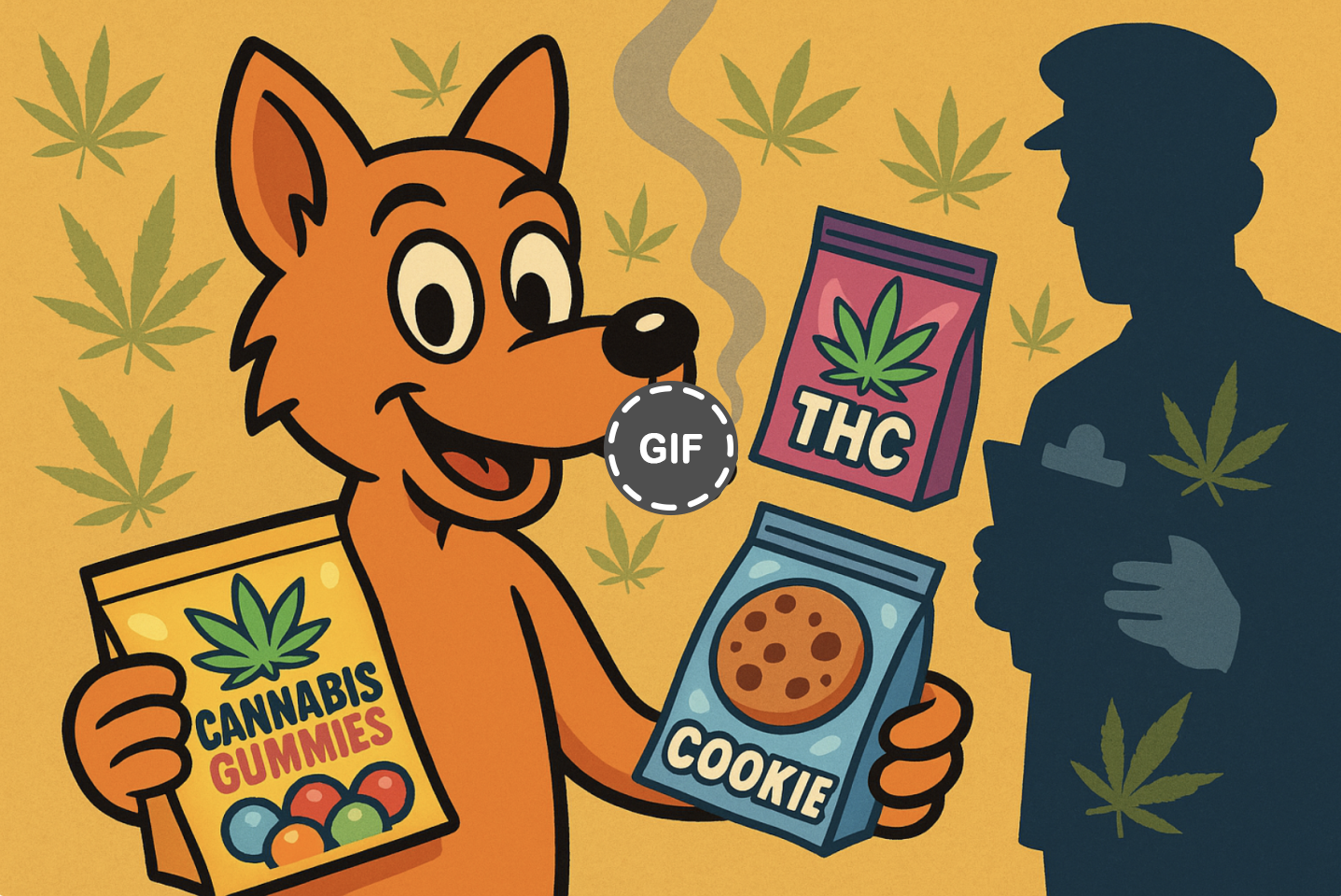
TL;DR: Cannabis is meant to be enjoyable for adults. But when products start looking like candy or cartoons, the line gets blurry. Tobacco’s history shows that even the appearance of marketing to kids can trigger harsh regulations. If cannabis wants a sustainable future, it has to prove it can draw that line for itself.
Cannabis has always been fun. It is part of what makes it powerful, what makes it stick in culture. But fun becomes a problem when it starts creeping into the territory of kid-friendly. That is the line the industry needs to pay attention to, now more than ever.
History has already shown what happens when that line gets crossed. Big Tobacco learned it the hard way: even the appearance of marketing to children is enough to trigger a backlash that can reshape an entire industry.
The Ghost of Joe Camel
Once upon a time, tobacco companies leaned hard into youth culture. Joe Camel, candy cigarettes, neon packaging, and bubblegum-flavored smokes were all part of the playbook. By the early 1990s, research showed that six-year-olds recognized Joe Camel almost as easily as Mickey Mouse. Camel’s share among underage smokers soared.
The public response was swift. By 1998, the Master Settlement Agreement banned cartoons in tobacco ads, restricted sponsorships, and wiped Joe Camel off the map. The lesson was clear: once the public believes you are targeting kids, you do not just lose credibility, you lose control over your own marketing future.
Cannabis’ Candy Problem
Today, echoes of that playbook are showing up again. In 2023, the FTC and FDA issued joint warning letters after finding THC edibles packaged to mimic Skittles, Oreos, Nerds Rope, Doritos, and Cheetos. Regulators deemed the practice reckless and illegal, since children could easily mistake these products for ordinary snacks.
In California, a 2025 state audit found that more than half of the reviewed cannabis products had packaging “likely attractive to children.” Designs included colorful fonts, cartoon mascots, and labels that mimicked cereals and cookies.
These incidents are not about strangers handing out weed candy on Halloween. That myth has been debunked year after year. The real risk, one that does occur from time to time, is more ordinary: a toddler at home finding a bag of gummies that looks exactly like the treats they already know and love.
Flavors, Fonts, and Lifestyle Crossovers
Packaging is only part of the story. Visit a legal dispensary and you will see products with candy-like flavors and bright, playful labels. As Columbia University epidemiologist Katherine Keyes noted, “If you go through a cannabis dispensary right now, it’s almost absurd how youth-oriented a lot of the packaging and the products are.”
On the other hand, the lifestyle layer adds another wrinkle. Some cannabis brands have leaned into culture so thoroughly that their logos appear on streetwear, music videos, and even kids’ clothing lines. Whatever the intent, the optics are tricky. When children wear cannabis-branded merch, even innocently, it normalizes adult practices in youth culture.
On social media, the risks multiply. A 2022 study of dispensary posts found that six percent featured cartoon characters like SpongeBob or Rick and Morty, while more than a third advertised steep discounts. These are old marketing tricks recycled from alcohol and tobacco, and for a reason: they still work.
The Regulatory Lens
In the US, states are already tightening their grip. Colorado banned edibles shaped like animals or fruit, and requires a universal THC symbol on every piece of candy. New York’s cannabis regulations forbid packaging or ads “designed in any way to appeal to children.” California has barred cartoons, neon fonts, and fruit imagery on labels.
At the federal level, agencies are also stepping in. The FTC and FDA crackdown on copycat edibles showed regulators do not need cannabis to be federally legal to act. And in Congress, the issue is already in debate. In 2025, Senate leaders cited hemp-derived gummies marketed like Oreos and cereals as justification for closing the intoxicating hemp loophole. Senator Mitch McConnell called it “deceptive and predatory marketing towards children.”
If cannabis continues down this path, federal legalization could arrive paired with harsh restrictions: plain packaging mandates, advertising bans modeled on tobacco, or a blanket prohibition on flavors. As things stand, the industry risks trading creativity for a regulatory straightjacket.
Walking the Line
The situation may seem dire, but let’s remember: cannabis is not Big Tobacco. It does not need to be. Nevertheless, perception is powerful: if the industry does not draw a clear line between adult fun and kid-friendly branding, others will draw it for us.
The choice is simple: either the industry proves it can self-regulate, or Congress and regulators will do so with a heavy hand.
Cannabis has a chance to write a different story. A responsible story. One that keeps products creative and culture-rich without turning them into candy-colored billboards for kids. That is how the industry earns trust, protects its future, and avoids being treated like the enemy it never wanted to be.
Disclosure: This article is for informational and educational purposes only. Cannabis products are intended for adults in jurisdictions where legal. Nothing here is intended to encourage use by minors.
Cover image made with AI.

Author: mscannabiz.com
MScannaBIZ for all you Mississippi Cannabis News and Information.

Dozen arrested after south Mississippi bust for illegal sales to underage customers

The Toking Traveler: Why Amsterdam Weed Is Mostly Boof

Arkansas Medical Marijuana Sales Are On Track To Set A New Annual Record

When Cannabis Brands Blur Into Youth Culture, Regulators Notice: Lessons From Tobacco’s Past

Rhode Island Marijuana Dispensary License Application Process Officially Launches

Middle school student found with cannabis in bookbag, Charles County deputies say

Smugglers who brought drugs on an industrial scale into Wales jailed

Attorney pulls out bag of cannabis in NC Supreme Court hearing

WHO AM I? Man wanted for New Bern cannabis store theft

Cannabis packages under scrutiny

California authorities shut down nearly $30 million worth of illegal cannabis operations

A Green Light for Cannabis? Europe Waits While the U.S. Untangles the Red Tape

Move Over, Booze: Weed Drinks Pulled $1.1 Billion in U.S. Sales in 2024

Congressional Committee Votes To Repeal Marijuana Expungements Law In Washington, D.C.

Times Square Welcomed Its Brightest Cannabis Billboard Yet

Smoking Marijuana With A Water Bong Doesn’t Effectively Filter Compounds From Smoke, Study Suggests

A Beginner’s Guide for Watering Cannabis Plants

Massachusetts Lawmakers Approve Bill To Create Psychedelic Therapy Pilot Program

From the Dark Web to the Streets: Meet the Canadian Distributing Pure Cocaine to Save Lives

Congressional Committee Schedules Hearing On Chinese ‘Invasion’ Through ‘Illegal Marijuana’ Operations

Carmelo Anthony Marks Hall of Fame With Hall of Flame Cannabis Drop

California: Lawmakers Advance Legislation to Governor’s Desk Halting Tax Hike on Commercially Available Cannabis Products

Federal Agency Gives Anti-Marijuana Group A Platform To Make Claims About Legalization’s Impact That Aren’t Supported By Data

California Cannabis Excise Tax Going Back to 15% Next Month

Alert: Department of Cannabis Control updates data dashboards with full data for 2023

Connecticut Appoints The US’s First Cannabis Ombudsperson – Yes there is a pun in there and I’m Sure Erin Kirk Is Going To Hear It More Than Once!

5 best CBD creams of 2024 by Leafly

EU initiative begins bid to open access to psychedelic therapies
New Study Analyzes the Effects of THCV, CBD on Weight Loss

Free delta-9 gummies from Bay Smokes

5 best autoflower seed banks of 2024 by Leafly

Discover New York’s dankest cannabis brands [September 2024]

Press Release: CANNRA Calls for Farm Bill to Clarify Existing State Authority to Regulate Hemp Products

May 2024 Leafly HighLight: Pink Runtz strain

Curaleaf Start Process Of Getting Their Claws Into The UK’s National Health System – With Former MP (Resigned Today 30/5/24) As The Front Man

Local medical cannabis dispensary reacts to MSDH pulling Rapid Analytics License – WLBT

5 best THC drinks of 2024 by Leafly

Recreational cannabis on ballot for third time in South Dakota

Horn Lake denies cannabis dispensary request to allow sale of drug paraphernalia and Sunday sales | News

Mississippi city official pleads guilty to selling fake CBD products

6 best CBD gummies of 2024 by Leafly

Nevada CCB to Accept Applications for Cannabis Establishments in White Pine County – “Only one cultivation and one production license will be awarded in White Pine County”

The Daily Hit: October 2, 2024

5 best delta-9 THC gummies of 2024 by Leafly

Weekly Update: Monday, May 13, 2024 including, New Guide for Renewals & May Board meeting application deadline

PRESS RELEASE : Justice Department Submits Proposed Regulation to Reschedule Marijuana

5 best THCA flower of 2024 by Leafly

People In This State Googled ‘Medical Marijuana’ The Most, Study Shows
Trending
-

 California Cannabis Updates1 year ago
California Cannabis Updates1 year agoAlert: Department of Cannabis Control updates data dashboards with full data for 2023
-

 Breaking News1 year ago
Breaking News1 year agoConnecticut Appoints The US’s First Cannabis Ombudsperson – Yes there is a pun in there and I’m Sure Erin Kirk Is Going To Hear It More Than Once!
-

 best list1 year ago
best list1 year ago5 best CBD creams of 2024 by Leafly
-

 Business12 months ago
Business12 months agoEU initiative begins bid to open access to psychedelic therapies
-

 cbd1 year ago
cbd1 year agoNew Study Analyzes the Effects of THCV, CBD on Weight Loss
-

 Bay Smokes1 year ago
Bay Smokes1 year agoFree delta-9 gummies from Bay Smokes
-

 autoflower seeds12 months ago
autoflower seeds12 months ago5 best autoflower seed banks of 2024 by Leafly
-

 cannabis brands12 months ago
cannabis brands12 months agoDiscover New York’s dankest cannabis brands [September 2024]




